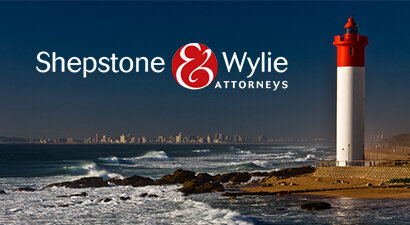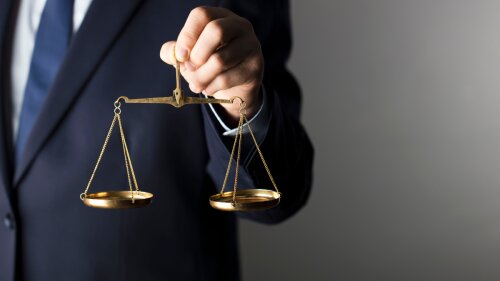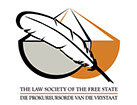Best Communications & Media Law Lawyers in South Africa
Share your needs with us, get contacted by law firms.
Free. Takes 2 min.
Or refine your search by selecting a city:
List of the best lawyers in South Africa
About Communications & Media Law in South Africa
Communications & Media Law in South Africa encompasses a wide array of legal issues involving broadcast, telecommunications, internet, advertising, censorship, and intellectual property rights. This field of law seeks to balance the rights of individuals and organisations with the public interest, while promoting free expression and maintaining the integrity of the media landscape. It is governed by a combination of legislation, common law principles, and regulatory guidelines established by bodies such as the Independent Communications Authority of South Africa (ICASA).
Why You May Need a Lawyer
There are several scenarios where an individual or organization might seek legal assistance in Communications & Media Law:
- Broadcasting disputes or needing advice on compliance with broadcasting regulations.
- Issues related to defamation or libel resulting from published material.
- Negotiating, drafting, or interpreting contracts for media contracts, including licensing and distribution agreements.
- Protection of intellectual property rights, including issues involving copyright, trademarks, and patents.
- Compliance with telecommunications regulations and dealing with regulatory bodies like ICASA.
- Cases involving privacy and data protection concerning the handling of personal information by media outlets or telecommunication providers.
- Defense or enforcement of rights related to internet and digital media activities.
- Advertising compliance to ensure all advertising content adheres to the applicable regulations and standards.
Local Laws Overview
South Africa's Communications & Media Law is comprised of several notable pieces of legislation and regulatory bodies:
- Electronic Communications Act: Regulates electronic communications networks and broadcasting services, aiming to promote convergence in the broadcasting, broadcasting signal distribution, and telecommunication sectors.
- Independent Communications Authority of South Africa (ICASA): The authority that oversees regulating the media and telecommunications industry, ensuring fair competition and consumer protection.
- Films and Publications Act: Governs content classification and aims to safeguard against harmful content while maintaining freedom of expression.
- Protection of Personal Information Act (POPIA): Provides comprehensive data protection guidelines, critical for businesses in managing user information responsibly.
- Copyright Act: Protects the rights of creators regarding their original works in fields such as literature, music, and broadcasting.
- Consumer Protection Act: Impacts advertising and marketing practices to ensure fairness and transparency for consumers.
Frequently Asked Questions
What is the role of ICASA in South Africa?
ICASA (Independent Communications Authority of South Africa) is responsible for regulating the telecommunications, broadcasting, and postal sectors in the public interest, ensuring compliance with the relevant laws, and promoting competition and accessibility.
How can I protect my content from being used without permission?
Registering your work under the South African Copyright Act and using contracts to license your content can provide legal protection and avenues for recourse if your content is used unauthorizedly.
What constitutes defamation in South Africa?
Defamation occurs when one party makes a false statement about another party, published to a third party, that damages the victim’s reputation. South African law covers both libel (written defamation) and slander (spoken defamation).
How does the POPIA affect media companies?
The Protection of Personal Information Act (POPIA) requires media companies to handle personal information responsibly and securely, ensuring transparency about data collection and use.
What are the requirements for starting a radio station?
To start a radio station, you'll need a broadcasting license from ICASA, compliance with technical standards, and adherence to both content regulation and ownership requirements.
Can I broadcast international programs in South Africa?
Yes, but be mindful of licensing agreements and ensure compliance with local broadcasting standards and content regulations regulated by ICASA.
What are the guidelines for online advertising in South Africa?
Online advertising must comply with the Consumer Protection Act and the Advertising Standards Authority guidelines, ensuring truthful representations and fairness to consumers.
How can I dispute a fine imposed by ICASA?
You can appeal an ICASA decision by formally writing to ICASA to review the decision. If unsatisfied, you may further contest it at the High Court, following legal procedures.
What type of media is protected under the Copyright Act?
The Copyright Act protects diverse works, including literary, musical, artistic, and cinematographic creations, providing exclusive rights to the creators.
Is internet content regulated in South Africa?
Yes, internet content regulation is primarily guided by the Films and Publications Act and POPIA, ensuring protection against harmful content and the privacy rights of users.
Additional Resources
For further guidance in Communications & Media Law, consider reaching out to the following organizations:
- Independent Communications Authority of South Africa (ICASA): The primary regulatory body for telecommunications and media services.
- South African Law Reform Commission: Provides comprehensive reports on legal reform, including media laws.
- Advertising Regulatory Board (ARB): Governs advertising practices, ensuring ethical standards in media campaigns.
- Legal Aid South Africa: Offers legal assistance to those who cannot afford it, covering various aspects of Communications & Media Law.
Next Steps
If you require legal assistance in Communications & Media Law, consider the following steps:
- Conduct research to understand the basics of your legal issue using reliable online resources or legal textbooks.
- Reach out to a lawyer specializing in Communications & Media Law for professional advice tailored to your situation.
- Consult the Law Society of South Africa for referrals to qualified attorneys in this field.
- Prepare pertinent documents and details about your legal issue to discuss with your lawyer.
- Consider mediation or alternative dispute resolution if suggested by your lawyer, which can save time and money over court proceedings.
Lawzana helps you find the best lawyers and law firms in South Africa through a curated and pre-screened list of qualified legal professionals. Our platform offers rankings and detailed profiles of attorneys and law firms, allowing you to compare based on practice areas, including Communications & Media Law, experience, and client feedback.
Each profile includes a description of the firm's areas of practice, client reviews, team members and partners, year of establishment, spoken languages, office locations, contact information, social media presence, and any published articles or resources. Most firms on our platform speak English and are experienced in both local and international legal matters.
Get a quote from top-rated law firms in South Africa — quickly, securely, and without unnecessary hassle.
Disclaimer:
The information provided on this page is for general informational purposes only and does not constitute legal advice. While we strive to ensure the accuracy and relevance of the content, legal information may change over time, and interpretations of the law can vary. You should always consult with a qualified legal professional for advice specific to your situation.
We disclaim all liability for actions taken or not taken based on the content of this page. If you believe any information is incorrect or outdated, please contact us, and we will review and update it where appropriate.
Browse communications & media law law firms by city in South Africa
Refine your search by selecting a city.














